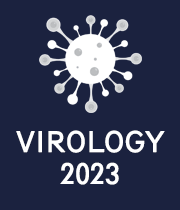Viral Pathogenesis and Immunity
The study of the process and methods by which viruses cause disease in their target hosts, frequently at the cellular or molecular level, is known as viral pathogenesis. The field of virology is a specialised field of study. The process through which an initial infection generates disease is referred to as pathogenesis. The effects of viral replication on the host, as well as the host's subsequent immunological response to the virus, are referred to as viral illness. Viruses can start an infection, spread throughout the body, and proliferate thanks to virulence factors. Pathogenesis is influenced by a number of factors. The virulence features of the virus that is infecting are one of these factors. The virus must also overcome many inhibitory effects in the host in order to cause disease. Distance, physical barriers, and host defences are all examples of inhibitory effects. Because the inhibitory effects are genetically controlled, they may differ from person to person.
- Acute Infection
- Animal Models
- Chronic Infection
- Immunopathology
- Pathogenesis
- Viral Immunity
- Virus
- Virus Infection
- Virus-Host Interactions

